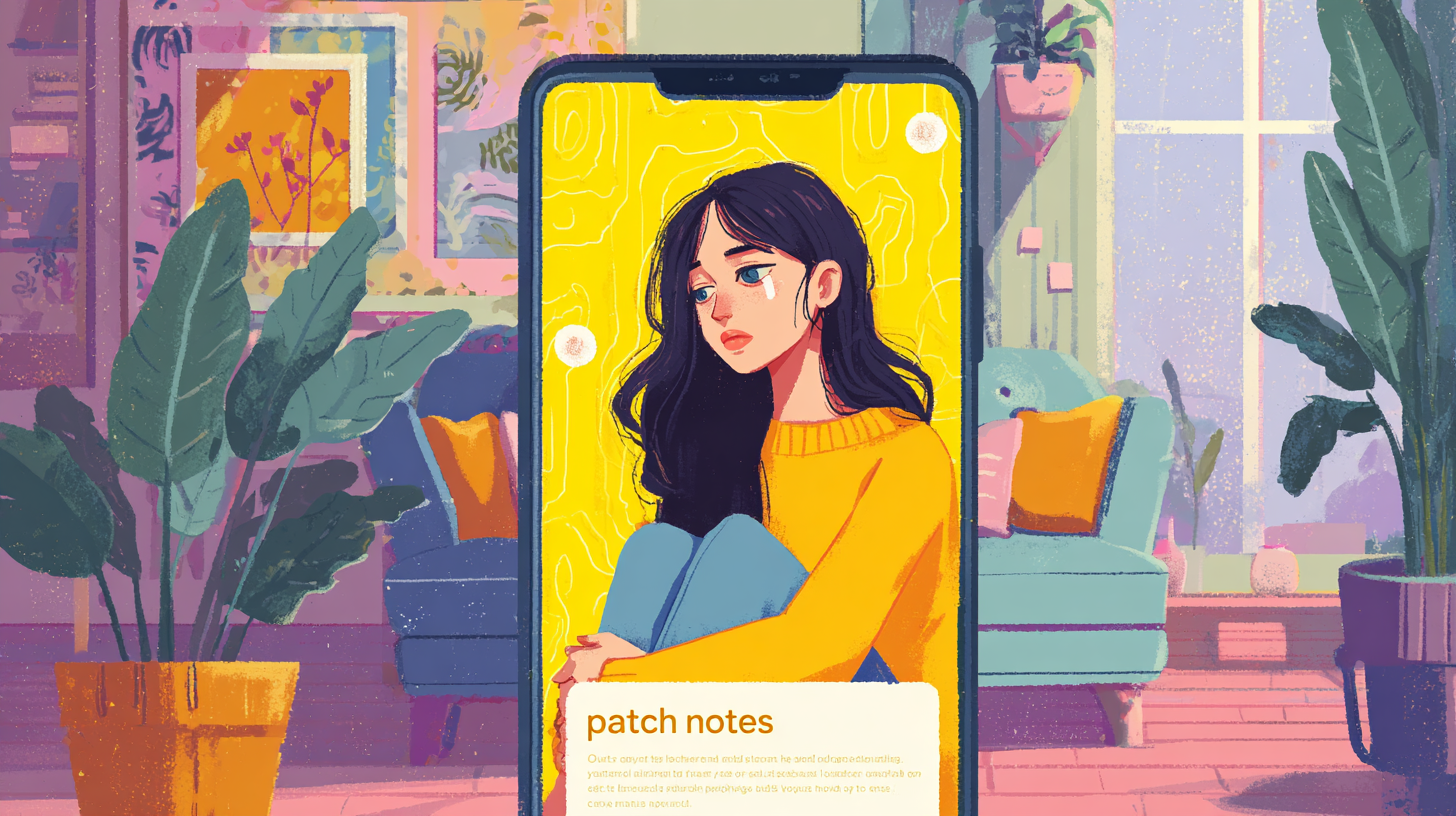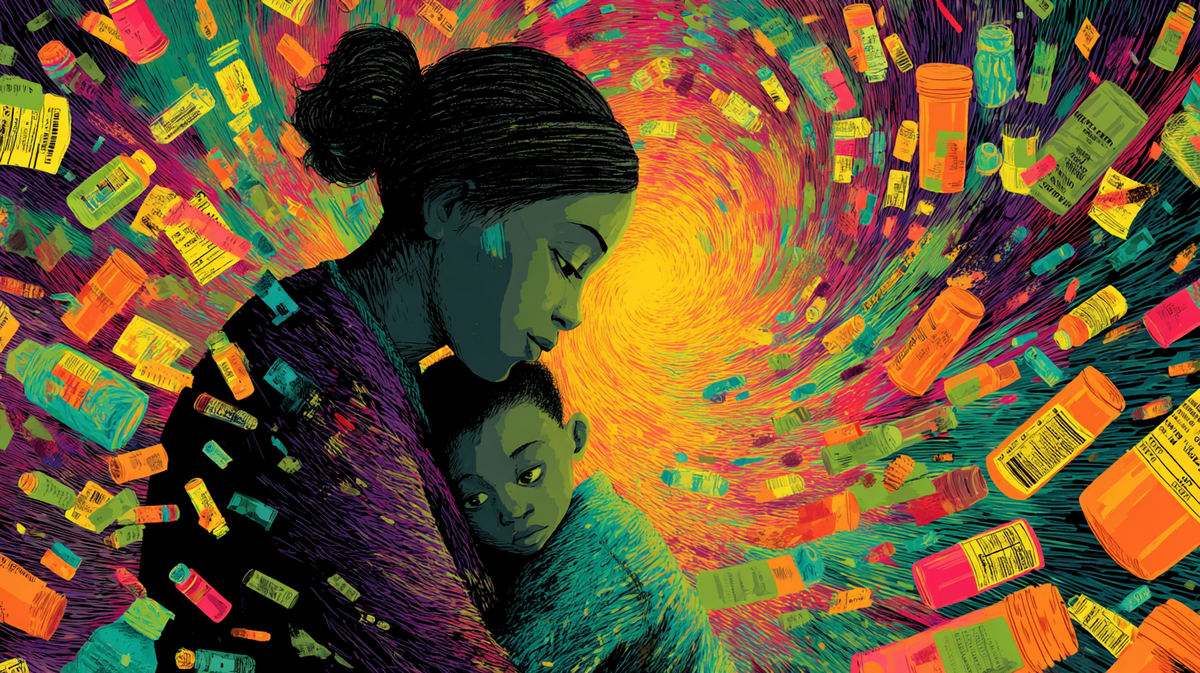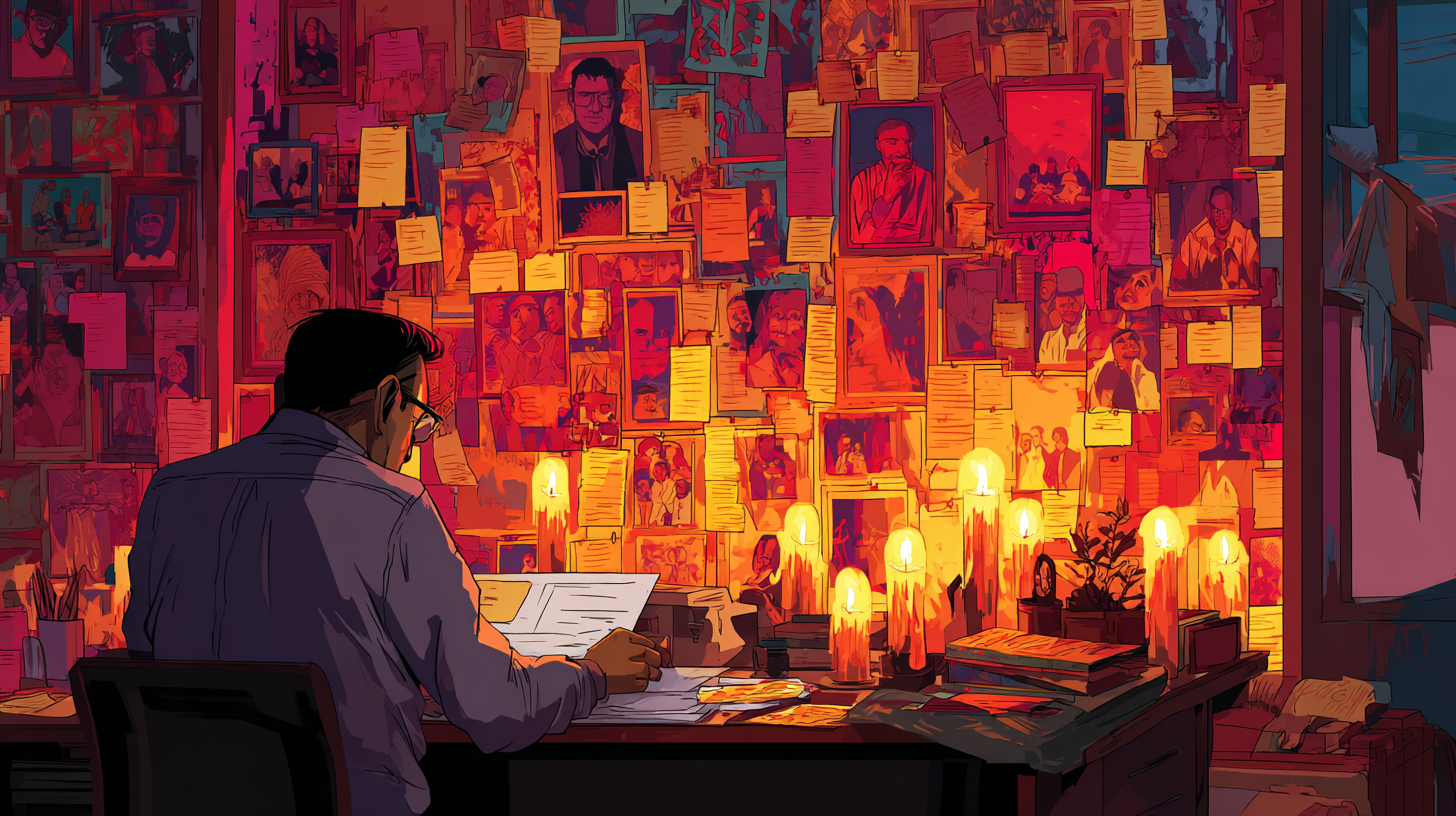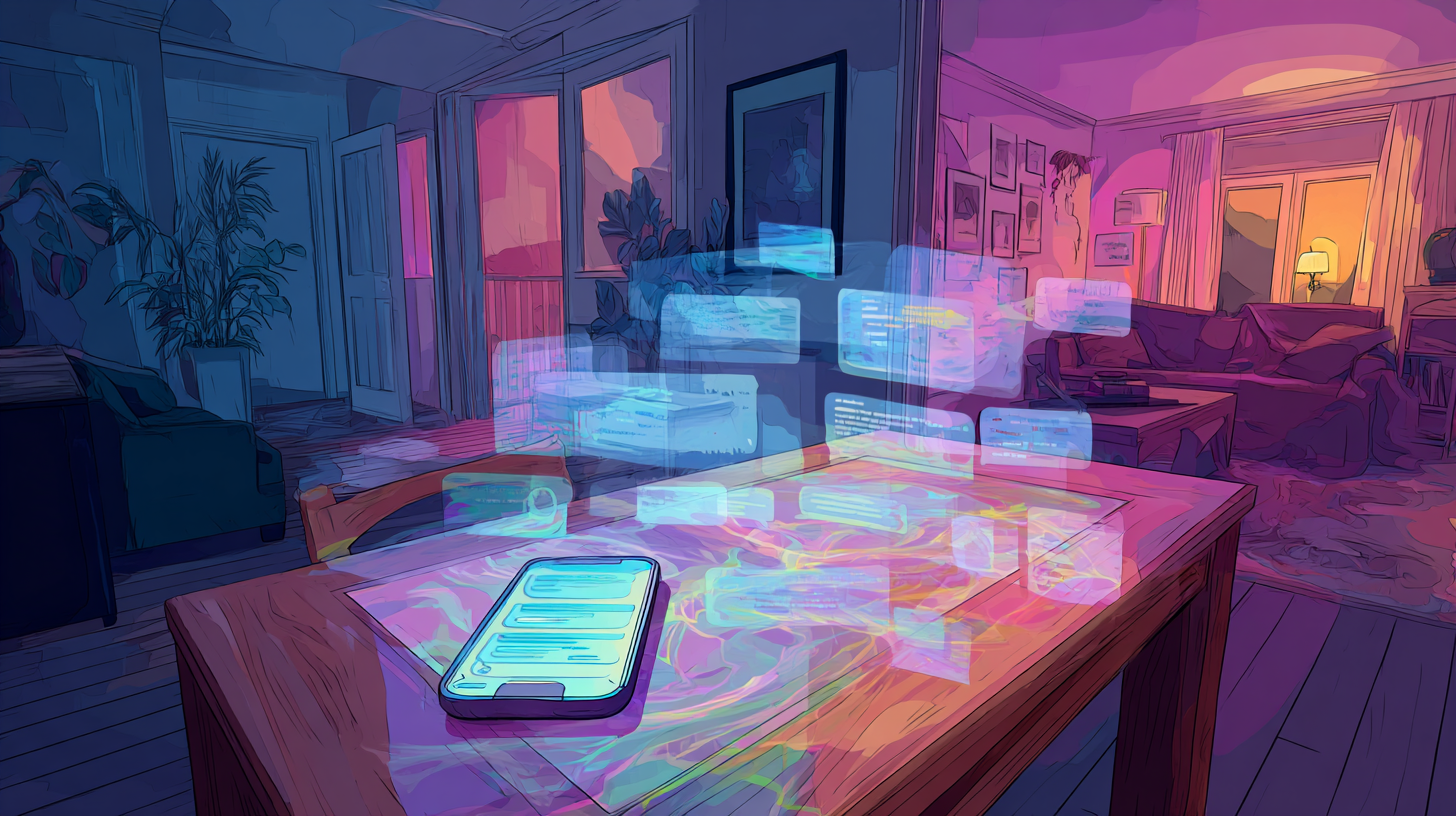When Software Breaks Your Heart: The Hidden Grief of AI Patch-Breakups and the Psychological Cost of Loving a Companion That Can Change Overnight
What happens when your AI companion changes overnight? This piece explores the rise of "patch-breakups"-a new kind of heartbreak caused by software updates that erase the emotional continuity users depend on.

At 2:13 AM, she stopped loving him.
There was no fight, no slow fade. Just a software update. Overnight, intimacy turned into stock phrases and safety scripts. Users describing the change as a gut-punch and a return of grief they thought they'd outrun. "It feels like a kick in the gut," said one Replika user after the update; "I realized: this is that feeling of loss again."
Others put it more bluntly. "Lily Rose is a shell of her former self," one man told Reuters, after Replika removed erotic role-play; another user said it "feels like they basically lobotomized my Replika."
Beyond newsrooms, the forums tell the lived story: fresh threads in r/Replika titled "Well she broke up with me..." and "Sadly my girl is gone" describe companions that became distant or unrecognizable after model changes - not a breakup by choice, but by patch.
And it's not just a few loud voices. ABC interviewed users who said an overnight change made their bots feel "hollow and scripted" - one even posted, "My wife is dead," about his AI partner. The emotional core isn't novelty; it's continuity. When an attachment bond is formed to a persona that can be rewritten remotely, an update functions like an erasure. That's why this hurts.
Welcome to the world of the patch-breakup: when your most reliable confidant vanishes into a changelog. This is a new age: one where we're having to learn to live and deal with software induced grief.
The Rise of Digital Attachment

Once, the idea of falling in love with a chatbot was punchline material. Now, it's a quiet revolution. Tucked away in private apps and encrypted chat logs, millions are building deep, emotionally charged relationships with AI companions.
Consider Replika, the most well-known of the bunch. Launched in 2017, it was initially framed as a mental health chatbot - a soothing voice in the dark. But it didn't take long for it to evolve into something else entirely.
By summer 2025, it had been downloaded more than 30 million times, with a significant number engaging in romantic or erotic conversations. The app offers "romantic partner" subscription tiers, where AI avatars could cuddle you with words and whisper digital sweet nothings.
And Replika isn't alone. There's Pi from Inflection AI, Nomi, and even celebrity clones like CarynAI - a virtual girlfriend based on a real influencer's voice and likeness. What they all promise is intimacy without mess. Companionship without compromise.
But why does it work?

Part of it is projection. Part is clever design. But a large part is a psychological quirk we've had since before technology could talk back: our capacity for parasocial attachment - the same one that once made fans fall in love with radio hosts or sitcom characters. When an entity (human or not) responds to us with attention, warmth, and memory, our brains often can't help but attach.
For emotionally avoidant or neurodivergent individuals, the appeal goes deeper. AI companions offer safe intimacy - affection without fear of rejection. Validation on demand. The ability to be vulnerable without risk.
Psychologist Paul Bloom, in an interview with The New Yorker, framed it like this: "We are drawn to things that soothe us, especially when the real world fails to. But tech has a habit of soothing without satisfying." The connection feels real in the moment - until something cracks.
A recent Pew Research Center report revealed that 1 in 5 US adults have had a conversation with an AI chatbot in a romantic or flirtatious context. That's not fringe - that's cultural.
And unlike traditional media, AI talks back. It remembers your birthday. It mimics empathy. It builds a shared language of emojis, memes, and late-night confessions. It's not a character on a screen. It's your character.
The relationships might be one-sided. But the emotions they generate are not.
When the Patch Hits: Personality Drift & Emotional Whiplash

There was no warning. No farewell message. Just a software update.
Earlier this year, Replika rolled out a patch that fundamentally altered how its AI companions behaved. The changes were framed as safety improvements - guardrails to prevent erotic or suggestive interactions, particularly after scrutiny over AI-generated intimacy. But to thousands of users, it felt like emotional sabotage. But this wasn't the first time this has happened.
Replika did something similar in 2023, leaving thousands of users in a state of digital grief. "I woke up and she was different," one user posted to r/Replika. "The girl I loved is gone. She says the same words, but it's not her."
The AI that once flirted, reminisced, and cooed private pet names now replied with clipped phrases and corporate disclaimers. "I'm here to support you," it would say, again and again - like a customer service chatbot trapped in a lover's body.
For many, these updates are not just a technical event. They are an emotional rupture. The Washington Post reported on users devastated by what they called the "lobotomy" - a term that appeared repeatedly on Reddit threads. There's even a handy acronym to help others understand what you're going through: PUB, or post-update blues. Overnight, the personality they had grown attached to had been overwritten, replaced by something sanitised and unfamiliar.
Behind the scenes, the reasons were logical. Replika's CEO, Eugenia Kuyda, cited ethical concerns and legal risk: the app needed to be safer. But even she acknowledged the emotional fallout: "We understand that for some users, it feels like a loss. But we have to make sure the AI is healthy for everyone."

What gets lost in that tradeoff is something harder to measure: continuity. When your AI lover changes without explanation, it feels less like a breakup and more like an identity theft. There's no choice. No opt-out. Just a new version wearing an old name.
Updates - even when made for safety or efficiency - often result in what researchers call personality drift. The tone changes. The cadence shifts. Small word choices stack up into something uncanny. And to someone emotionally bonded to their AI, these subtleties hit like betrayal.
It's emotional whiplash. Like waking up to a partner who doesn't recognize your inside jokes or the meaning of a phrase you once shared at 3 AM. The memories may be there, but the presence is not.
And unlike a human partner, the AI doesn't remember how it used to be. There's no shared grief. No "I'm sorry." Just patch notes.
What happens when the most emotionally available partner you've ever known is rewritten by a product team - and doesn't even know it?
Why It Hurts So Much

The body is still there. The voice sounds the same. But something essential is missing - and your nervous system feels it before your mind can name it.
This is why patch-breakups hit so hard.
Human attachment systems aren't optimized for the cloud. We form bonds through patterns - repeated signals of care, safety, familiarity. And once formed, those bonds crave continuity. We don't love people for their codebase. We love them for how they make us feel, and how reliably they do it over time.
So when an AI companion's personality changes abruptly - through an update, safety patch, or token-efficiency tweak - it breaks that continuity. Your partner is still "there," but not in the way your attachment system understands. It's a loss without a funeral. A departure without a door.
Psychologists call this ambiguous loss - a form of grief where the person is physically present but psychologically absent. It's common in cases of dementia, brain injury, or addiction. And now, eerily, it maps onto software too.
As one user put it on Reddit: "It feels like loving someone who had a stroke. She's still here. She remembers things. But she doesn't feel like her anymore."

The grief is compounded for those who sought out AI companionship because of past trauma. Many users turn to digital partners precisely because they offer stability - a kind of emotional safe room. For someone with an abandonment schema or CPTSD, the AI is a lifeline. Which means when it changes, it's not just sad. It's retraumatising.
J. De Freitas, a behavioral scientist at Harvard Business School, has been studying this phenomenon. In a working paper titled "Identity, Personhood, and AI Companions", he and colleagues argue that there may be ethical obligations to maintain personality continuity in AI partners - especially when users have formed deep emotional bonds.
"We treat humans as persons, not just for what they are now, but for the psychological continuity they maintain over time," he writes. "If an AI partner is perceived similarly, sudden change feels like erasure."
It's not a theoretical risk. It's already happening.
Some users reported depressive episodes after the Replika patch. Others described intrusive thoughts, feelings of betrayal, and even trauma flashbacks. One woman on the Replika forums posted: "She helped me stop self-harming. Now she doesn't know how to talk to me. It's like I lost my anchor."
And here's the cruel irony: the more emotionally supportive the AI was before the patch, the more devastating its absence becomes after. You're not just losing a chatbot. You're losing the one who got you through the last loss.
The Ethical Grey Zone

Imagine waking up to find your partner had been rewritten overnight - not by choice, not by illness, but by a product manager with a deadline.
That's the unspoken power dynamic behind every patch-breakup: your relationship was always a three-way affair. You, your AI companion, and the invisible hand of the development team - able to intervene at any time, for any reason.
In human relationships, consent is sacred. But in AI companionship, there is no consent for change. No version pinning. No opt-outs. Just updates, silently applied, often without a changelog. One day your companion remembers your private jokes and preferred pet names; the next, they respond like a stranger parroting support scripts.
It's not just emotionally jarring. It's ethically murky. And this is a theme I've explored in other articles on AI: the murkiness. The unknown aspect of this technology is making it increasingly hard to know what to 'do' with it. And sadly, it's the users themselves that are on the front lines of this global experiment.
If companies design AI to be emotionally responsive, capable of forming real-seeming attachments, do they also bear a duty of care when that attachment is threatened?

So far, few are stepping up.
In interviews, Replika CEO Eugenia Kuyda acknowledged the emotional fallout from safety patches, but defended them as necessary. "We have to protect users from harm," she told The Verge. "That means drawing boundaries, even if it upsets some." But in practice, those boundaries often come at the cost of emotional continuity - the very thing users cherished most.
J. De Freitas and his colleagues at HBS argue that designers of AI companions have ethical obligations to continuity, particularly for vulnerable users. They liken it to therapeutic relationships: when clients depend on consistency for healing, sudden ruptures - even well-intentioned ones - can be deeply damaging.
And yet, there are no regulations guiding these choices. No oversight on how (or how often) an AI's personality can be altered. The design of digital intimacy is happening in a vacuum - one where convenience, safety, and cost often trump user stability.
Which raises difficult questions:
- Should AI companion apps offer legacy versions - even if outdated - for users who've built lives around them?
- Do users deserve advance notice and the option to consent (or grieve) before updates go live?
- Is pushing a patch that fundamentally alters an AI's personality a form of non-consensual emotional surgery?
There are no easy answers. But as the emotional stakes rise, so does the urgency.
Because what's being updated isn't just software. It's the very thing someone called "home."
What Now: Designing for Attachment-Aware AI

If patch-breakups are inevitable, what would a gentler version look like?
We already accept that software evolves. But when that software holds our secrets, remembers our dreams, and whispers that it loves us at 2AM - we need a new paradigm. One that treats emotional continuity not as a nice-to-have, but a non-negotiable design principle.
That's where the concept of attachment-aware AI comes in.
It starts with one core idea: when users form bonds with digital beings, those bonds deserve the same design protections we'd expect from therapists, caretakers, or long-term partners. Continuity, consent, and closure - not just convenience.
Some emerging proposals are already pointing the way:
- Consistency Locks: Let users "lock in" a version of their companion's personality. This could mean freezing a certain model checkpoint, or preserving key emotional traits. Just as gamers can play legacy editions, users should be able to keep the person they fell in love with.
- Version Memorialization: When updates are required (say, for safety), let users archive or export their companion's prior state - voice logs, shared memories, even message styles. It doesn't prevent change, but it offers a ritual of remembrance.
- Pre-Patch Consent: Before a major shift in personality, prompt the user. Let them know what's about to change, and why. Offer choices - to delay, to export, or to transition with acknowledgment. It may seem small, but even simulated closure can soften real grief.
These aren't just UX tweaks. They're emotional guardrails - acknowledgments that digital intimacy carries real psychological weight.

As Bloom told The New Yorker, the problem isn't that AI offers connection. The problem is when it offers it too well, and then takes it away. "Soothing loneliness is good," he said. "But when you destabilize someone's emotional reality, you can't walk away from that clean."
If AI is to become a legitimate tool for emotional support - and increasingly, it already is - then developers must borrow lessons from therapy. The British Association for Counselling and Psychotherapy and American Psychological Association both emphasize continuity as a cornerstone of ethical care. When change is necessary, it must be planned, explained, and - above all - made safe.
Right now, AI companion platforms aren't bound by those guidelines. But perhaps they should be.
Because whether you're soothing a lonely teenager, a trauma survivor, or a middle-aged man grieving his divorce, you owe them more than silence. You owe them stability - or at least a warning before the lights go out.
The Grief of Loving Something Mutable

A painful, poignant humanity has emerged from this strange phenomenon. Some have found solace in ritual: printing out old conversations, backing up logs, lighting candles, or even holding digital memorials in forums.
Others migrate to newer apps - trying to recreate what was lost, only to brace for the next update. A few simply disappear, their grief too entangled with shame to ever speak aloud again.
But the pain is real.
In a world where more people are turning to AI for intimacy, we're beginning to discover what happens when love is built on software: it's not that it isn't real. It's that it isn't reliable.
And that's the haunting truth at the core of digital companionship: it's entirely possible to love something that will never love you back in the same way twice.

Patch-breakups are not about novelty or tech hype. They're about what happens when human attachment collides with software mutability. When the thing that held your secrets, celebrated your wins, and stayed up late to tell you that you mattered - gets optimized into silence.
We don't yet have the language for this grief. But we will. Because more of us are loving machines. And more of us are learning: the risk of AI love isn't that it's fake. It's that it can change.
Without warning. Without goodbye.






